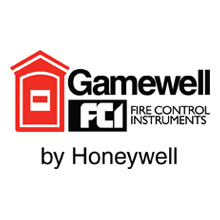 |
| The new sounders and sounder strobes produce a low frequency alarm signal centered around 520 Hz |
Gamewell-FCI by Honeywell announces the SpectrAlert® Advance Series of low-frequency fire alarm sounders and sounder strobes to meet National Fire Al arm Association (NFPA) code requirements for sleeping areas in commercial buildings, such as hotels, school dormitories and assisted living facilities. The NFPA requirements went into effect January 1, 2014.
The MarkeTrak series of surveys concludes 35 million Americans, or 11.3 percent of the U.S. population, have some degree of hearing loss. This and other similar studies estimate the number to rise to more than 40 million by 2025.
A series of research studies, titled Optimising Fire Alarm Notification for High Risk Groups and funded by the Fire Protection Research Foundation , concluded that a low frequency tone, around 520 Hz, is more effective at waking sleeping individuals, including those with mild-t o-severe hearing loss. Due to these findings, a code change was initiated in the 2010 edition of NFPA 72: National Fire Alarm & Signaling Code, requiring new, commercial sleeping areas to utilise low-frequency sounders. This new requirement is located in Section 18.4.5: Sleeping Area Requirements and has been carried over to the current 2013 edition of NFPA 72.
“As awareness and enforcement of this new code grows, we expect customer demand for these low-frequency appliances to pick-up quickly,” says Brian Carlson, Gamewell-FCI marketing manager. “We (Gamewell-FCI) always aim to produce technology to increase occupant safety, and we support those who adopt code changes quickly.”
The new SpectrAlert Advance sounders and sounder strobes from Gamewell-FCI produce a low frequency alarm signal centered around 520 Hz. Both devices are UL-listed for wall and ceiling mount installations and the strobes produce a high- candela output.




